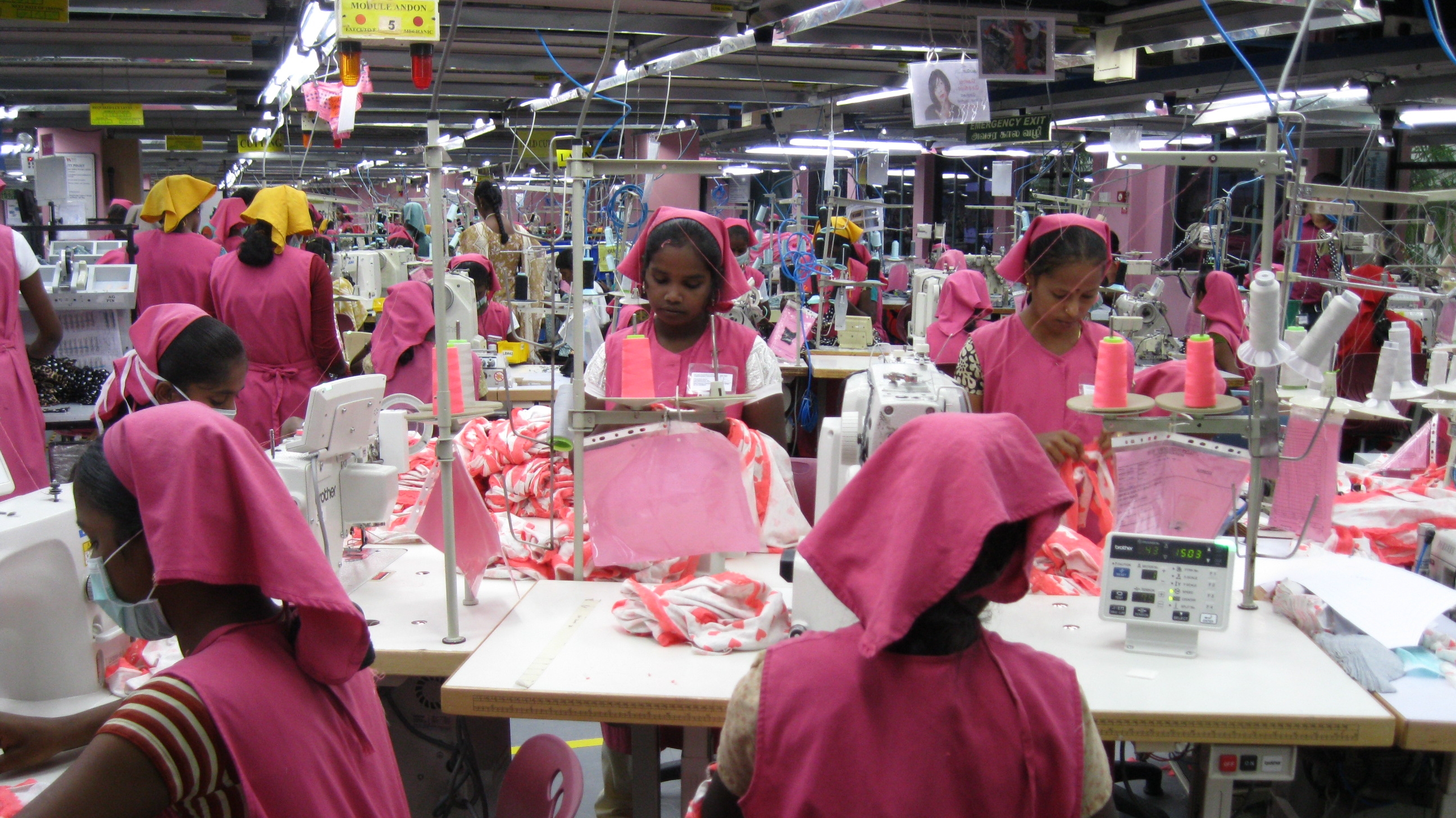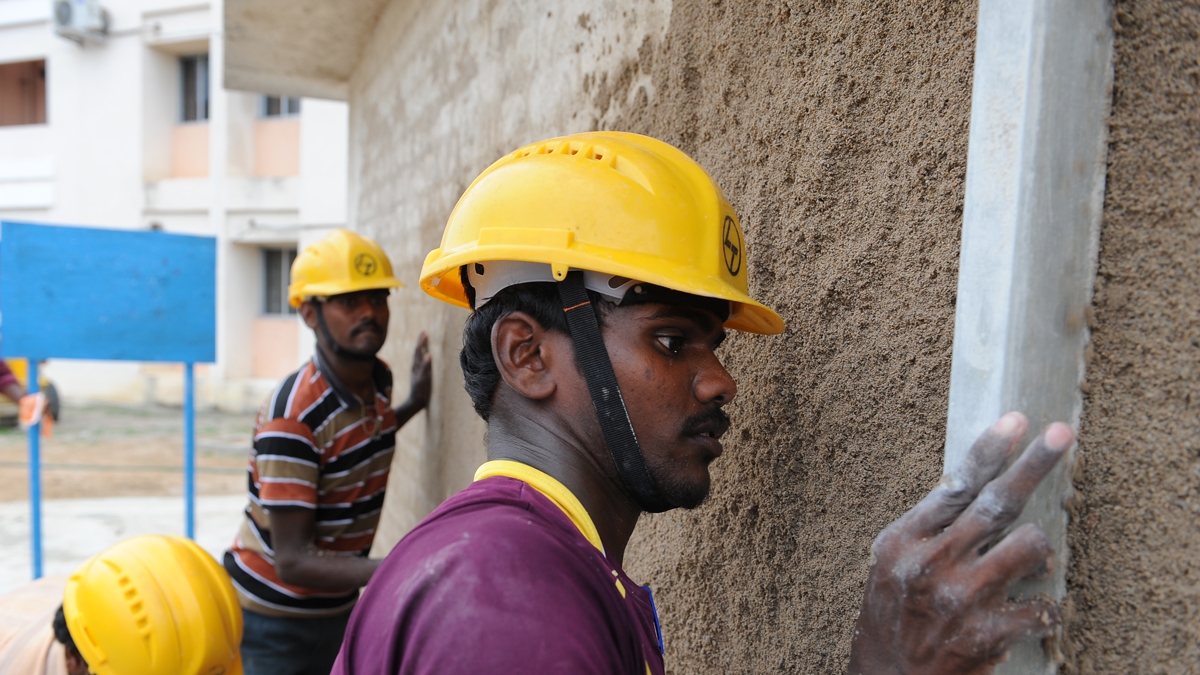Born and raised in a thatched one-room hut in rural Tamil Nadu, twenty-two year old Enita now spends her day amidst mounds of brightly colored lace, sewing fancy lingerie for the high-fashion stores of western capitals. A hint of jasmine fills the air and lilting Bollywood music keeps time with the gentle hum of machines on the air-conditioned factory floor.
Enita’s life stands in marked contrast to her mother’s. The older woman still toils under the harsh Indian sun doing strenuous manual labor under a government-sponsored employment program. The vast gulf between the women's lives is a harbinger of the change that is sweeping across large parts of Tamil Nadu in just one generation.
The young woman’s manufacturing job has turned the family’s fortunes around. In four years, she has put together a handsome dowry for her older sister and is now paying the college expenses for her younger sibling. “Had I remained at home, I would have been married by now and had two children,” Enita said.
Instead, she is proud of being the family’s chief breadwinner after her father, a farm laborer, died leaving a penniless wife and three daughters. “Once my younger sister is on her feet, I’ll save for my own dowry,” Enita said brightly. Like her peers, she is certain that the dowry will help her find a better match in the marriage market and give a good start to her wedded life thereafter.
Enita’s story is far from unique in this rapidly growing industrial belt around Chennai, Tamil Nadu’s capital. It plays out time and again in the lives of the 1,200 or so young women who share the dorm with her at Intimate Fashion, a lingerie manufacturer in Kanchipuram district, as well as in the lives of the thousands of others working in similar garment manufacturing units nearby.
The girls’ wages help fulfil small aspirations and long-cherished dreams. Most families first spend on better food, or replace thatched huts with brick-and-mortar homes. While the younger girls usually hand their ATM cards to their mothers, the older women put aside their earnings to give their children the best education they can, often forfeiting simple comforts like buying a fridge despite the searing tropical heat.
Skilled Jobs – the Best Way to Transform Rural Lives
“Skilled jobs are enabling poor rural families to change their lives forever,” said R.V. Shajeevana, additional project director for the World Bank-supported rural livelihoods project in the state. “But while landless laborers want their children to move out of penurious lives in agriculture, they don’t know how to go about it and lack the skills to do so.”
This is where the World Bank-supported project – aptly named ‘Pudhu Vaazhvu’ or ‘new life’ in Tamil – comes in. In a win-win situation, the project draws on its vast database of poor rural youth, focusing first on school drop-outs, and links them up with better-paying jobs in the new economy through job fairs and recruitment drives.
It also makes it easier for employers to find steady workers in one of the state’s most industrialized regions, where attrition rates have touched all-time highs. “Earlier, most of our workers came from the villages around, and company buses fetched them from a 30 km radius,” said Malarvannan Fernando, the human resources head at the lingerie manufacturer.
“But since 2005, when industries like Samsung, Nokia etc. set up here, it has become extremely difficult to find good workers because people can get jobs close to home. Our buses now cover a 90 km radius, and our dorm girls come from as far as 350 km away.”
Girls in the garment industry earn Rs. 6,000 a month in addition to free food, travel, medical expenses, plus overtime, bonuses and other small perks – a substantial sum for impoverished rural families.



